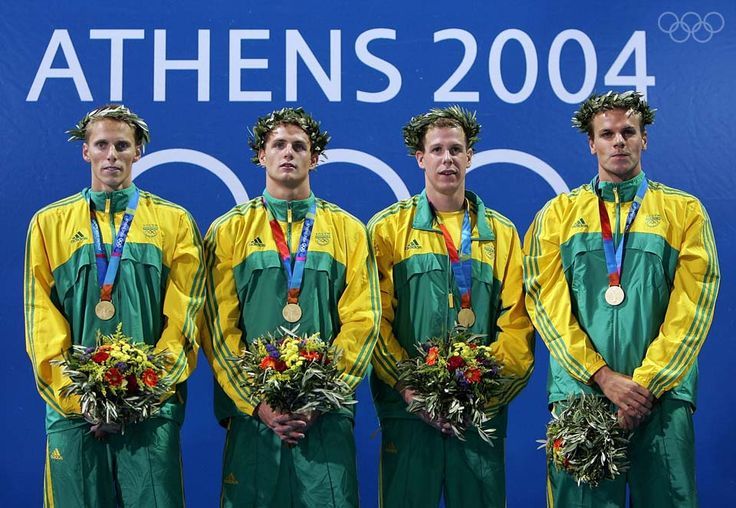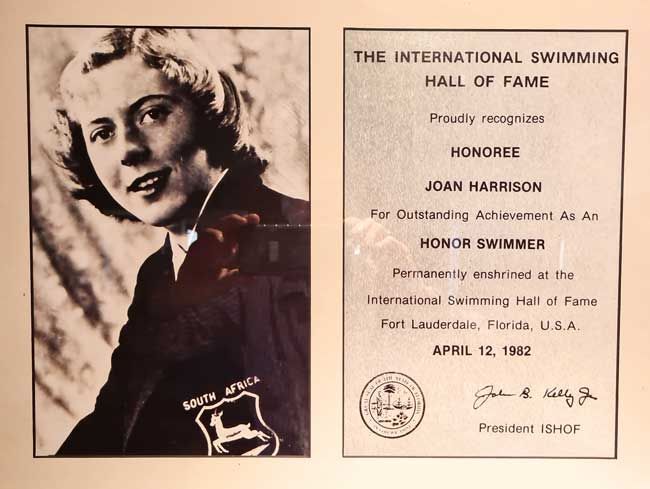Swimming in South Africa

South Africa has had considerable success in international swimming, setting more than 60 world records and winning numerous Olympic medals.
Read more about their 2004 Men's 4x100 freestyle relay gold medal victory.
Swimming has been an Olympic sport since 1896, and the current program includes events from 50 m to 1500 m in length, across all four main strokes. Open-water racing and marathon swimming events are held over longer distances in various bodies of water. The sport is governed internationally by the Fédération Internationale de Natation (FINA) founded in 1908. The South African Amateur Swimming Union joined in 1909.
Recreational swimming takes place in any suitable body of water. Today, "wild swimming" involves rivers, dams, quarries, and oceans, as well as tidal pools.
South Africa boasts a successful history in international swimming - from Jenny Maakal's bronze medal at the 1932 Olympic Games to Joan Harrison's gold medal at the 1952 Helsinki Olympic Games and Chad le Clos. The history of competitive swimming in South Africa includes the participation of the Rhodesian ASA Swimming Association, which competed at nationals from 1920 to 1980, and South West Africa, until that country became Namibia in 1990.
Although water carnivals were often held in a flooded dry dock, open water was the traditional location for swimming - the sea, rivers and dams. In South Africa, Henry Hooper swam to Robben Island in 1908, while the Seals Swimming Club of Pietermaritzburg hosts the annual Midmar Mile, which is the world's largest open water mile race. Mile races were a feature of 19th-century swimming, with the 1924 Redhouse River Mile in Port Elizabeth being the oldest extant event in South Africa. Since 2008, a 10 km open water swimming race has also been an Olympic event.
Swimming and water polo continue to thrive in both primary and high schools, with many schools boasting a pool, or even two pools, where water polo is a popular sport for boys and girls.
The first South African Masters swimming nationals were held in 1985.
NOTE:

1. FINA competitive racing
The Federación Internacional de Natación - FINA - was founded in 1908 and has been the international governing body for competitive aquatic sports, including swimming and open-water swimming. It was renamed to World Aquatics in 2022. The South African Amateur Swimming Union joined FINA in 1909 and governed the sport in South Africa until it was disbanded in 1995. It was replaced by a professional governing body under the control of the Department of Sport, Arts and Culture, known as Swimming South Africa.
Read more →
2. Open Water Racing
Open water racing dates from the 19th century, when the British colonists imported gambling to the Cape. Money was bet on races and endurance feats, like swimming long distances, including the Robben Island crossing by Henry Hooper in 1909 and the 1926 race from the Island, won by Peggy Duncan.
Read more →
3. Long Distance Marathon swimming
Long-distance, or marathon, swimming is about the swimmer overcoming the challenge presented by a body of water, such as crossing Table Bay from Robben Island. Other famous long-distance marathon swims include the Catalina Island, English Channel, Straits of Gibraltar and Alcatraz Island.
Read more →
4. Swimming clubs
The British brought organised aquatic sports to South Africa in the 1800s. The earliest swimming clubs were established in Port Elizabeth, Cape Town, Durban and Pietermaritzburg.
Read more →
5. School's swimming
Sports are an important part of school life in South Africa. Highly competitive exchanges have characterised the relationships between schools, which also expand into provincial-level inter-school competitions. National school teams have sometimes been selected and awarded colours featuring a waterbuck.
Read more →
6. University swimming
University sports have always been a big part of student life at South African universities. There was an annual 'inter-varsity', usually held at the campus of one of the competing institutions, and varsity teams often toured. Protea Colours were awarded to teams representing South African universities.
Read more →
7. Learn to Swim
In South Africa, swimming lessons were traditionally a part of swimming club activities. Professional swimming coaches and teachers also provided swimming lessons. Organised commercial Learn to Swim programmes are now a feature of South African swimming, as numerous swim schools have been set up in communities across the country.
Read more →
8. Disabled swimming
Competitive swimming for disabled swimmers has been a part of South African swimming for many years. At the 1972 Paralympic Games held in Germany, South Africa won 8 gold medals, including a world record set by Willie Bosch. More recently, disabled champions like Natalie du Toit and Kevin Paul have brought Paralympic swimming into the mainstream of swimming in South Africa.
Read more →
9. Age group swimming
Age Group swimming was initiated in the United States in the early 1960's and South Africa has had its own version of the competition.
Read more →
10. Masters swimming
Masters Swimming started in South Africa during the 1980s, with the first national masters championships held in Durban in 1985. Since then, South African swimmers have set numerous masters world records.
Read more →